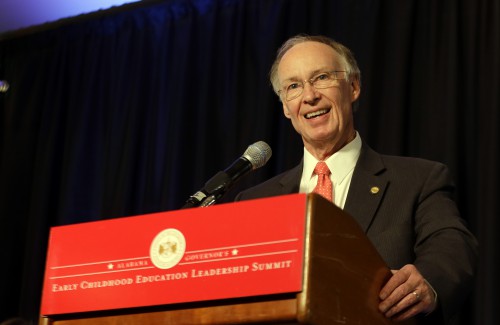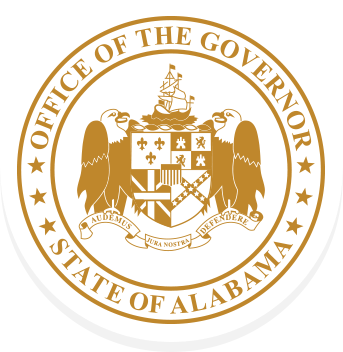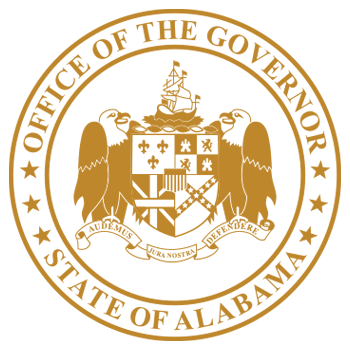Alabama Leaders Highlight Importance of High-Quality Early Learning Programs at Governor’s Summit

MONTGOMERY–Nearly 300 early childhood education leaders from across the state gathered in Montgomery on Thursday to discuss and learn more about the state’s vision for high-quality early learning and care beginning at birth and continuing through age five.
Hosted by Alabama Governor Robert Bentley along with a total of twelve state agencies and nonprofit organizations, the Alabama Governor’s Early Childhood Education Leadership Summit was a celebration of the state’s high-quality early childhood programs and the shared vision for comprehensive early learning held across the state.
The Summit featured national experts on early childhood policy and cutting-edge brain development research, and showcased how Alabama leaders are utilizing the latest research and funding mechanisms to ensure that they are meeting the needs of our state’s youngest children.
“There is no issue more important to Alabama’s economic future than developing our next generation of children,” Governor Robert Bentley said. “Children start the learning process at birth, and I believe early education is the foundation for success in life. Today’s summit was a great opportunity to highlight the importance of early childhood education and I appreciate the partnership and commitment of those who work in early childhood education.”
The Summit highlighted the state’s voluntary First Class Pre-K program, home visiting programs, child care centers, and elementary schools and new federal grants for Early Head Start/Child Care Partnerships and Pre-K expansion. Speakers discussed how the state’s focus on research-based and developmentally appropriate learning activities is one reason why Alabama’s early childhood education and care programs are among highest quality programs in the country.
Highlighting the fact that a child’s first five years are the most critical in the development of a child’s brain, speakers discussed why these programs are a state, national and private sector priority, and why Alabama is working to expand access to these programs. During these years, children begin to develop their cognitive, social, emotional, and language skills and start to relate and interact with the world around them.
Leaders from the Alabama Department of Children’s Affairs, the Alabama Department of Human Resources and the Alabama State Department of Education also discussed how they are partnering and aligning early learning programs across their agencies to better prepare children for success in school.
Among the featured speakers was Dr. Patricia Kuhl, a preeminent early brain development researcher, who shared her latest research that demonstrates the importance of a child’s early exposure to language and how critical it is to the child’s learning and academic achievement.
Leaders from the U.S. Departments of Education and Health and Human Services also took part in today’s summit to learn more about Alabama’s programs and discover best practices to share across the country. The speakers also provided insight into how their offices could complement the state’s efforts.
In addition, attendees heard a powerful testimony from Birmingham attorney and author Liz Huntley. Mrs. Huntley discussed how her grandmother’s emphasis on giving her access to a high-quality early childhood education helped lift her out of poverty and eventually into a position on the Auburn University Board of Trustees.
The 2015 Alabama Governor’s Early Childhood Education Leadership Summit was sponsored by Alabama Power and PNC Bank along with additional support from the W.K. Kellogg Foundation.
The Summit was organized by the A+ Education Partnership; the Alabama Association of Licensed Early Care and Education (AALECE); the Alabama Association for Young Children; the Alabama Department of Children’s Affairs; the Alabama Department of Human Resources; the Alabama Head Start Association; Alabama Partnership for Children; the Alabama School Readiness Alliance; the Alabama State Department of Education; the Federation of Childcare Centers of Alabama (FOCAL); the Alabama Head Start State Collaboration Office; and VOICES for Alabama’s Children.
Provided by the Office of the Governor of Alabama | governor.alabama.gov

